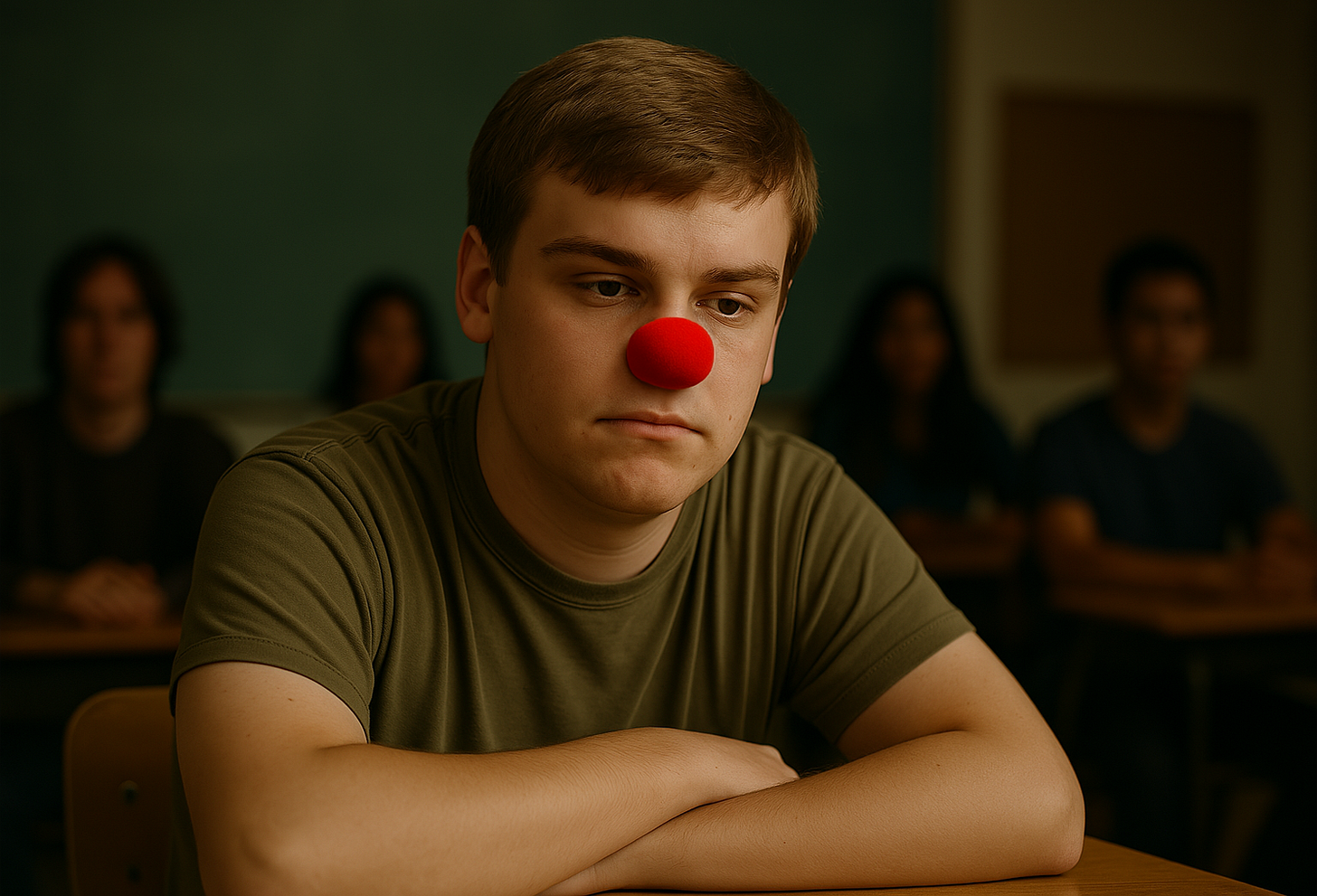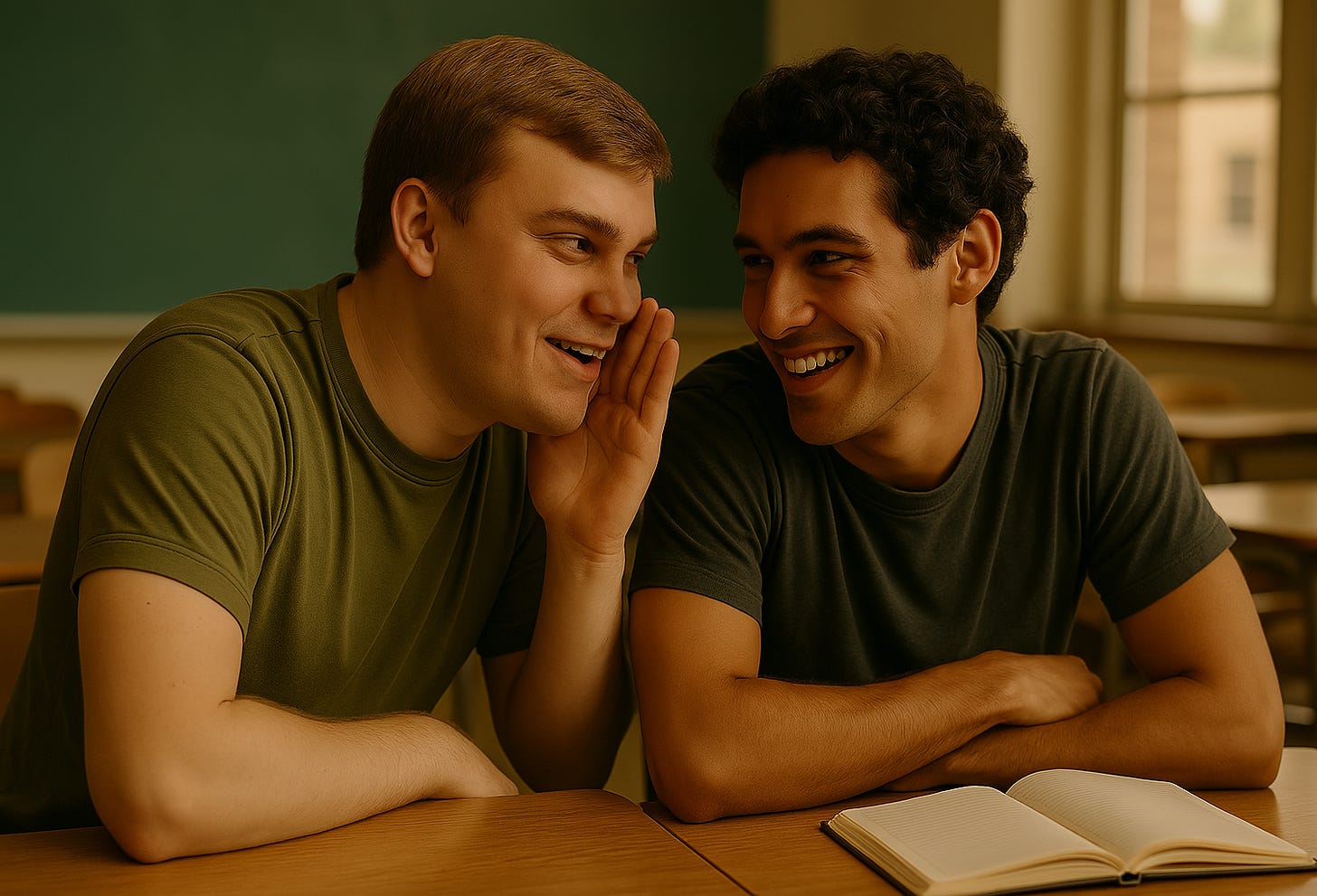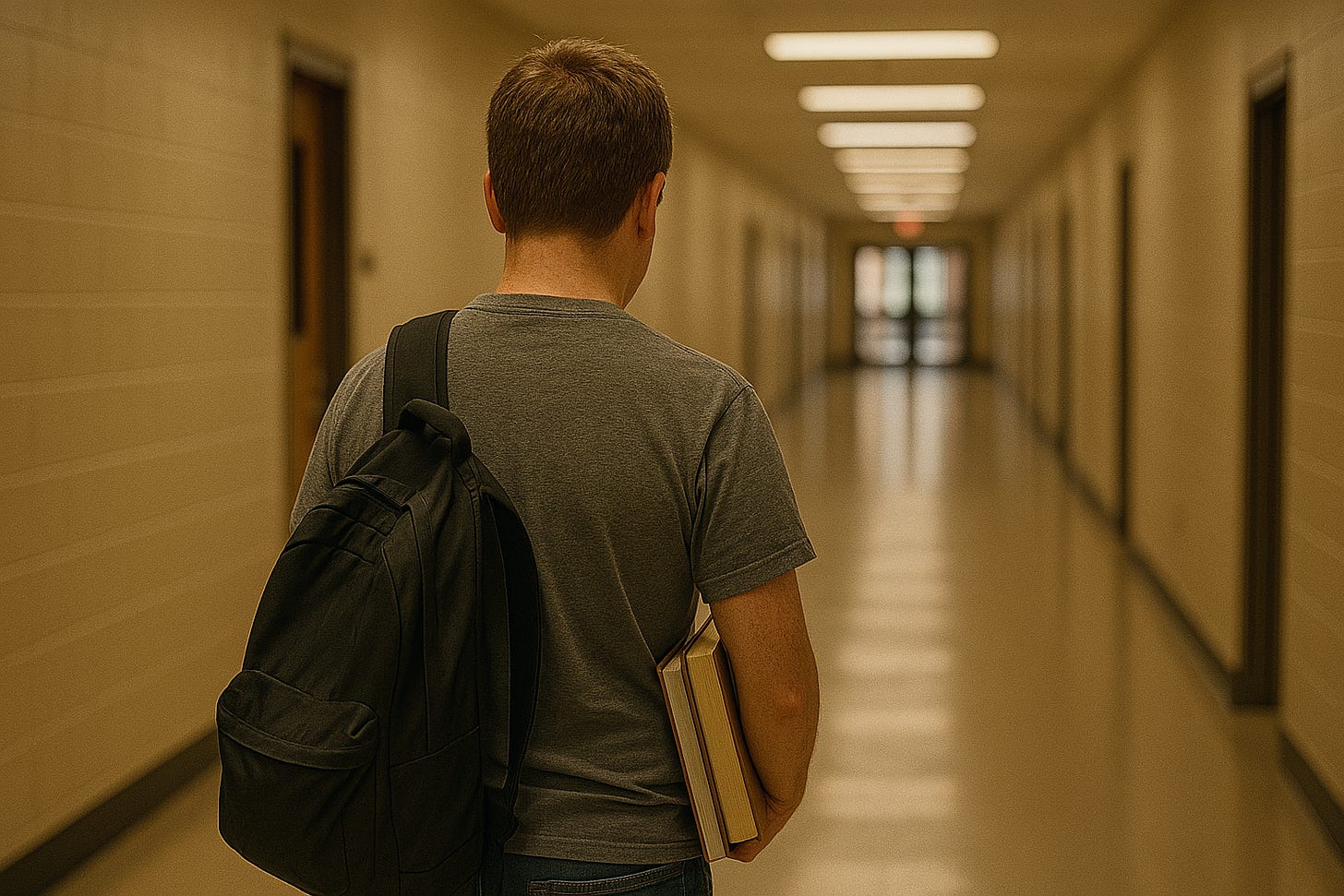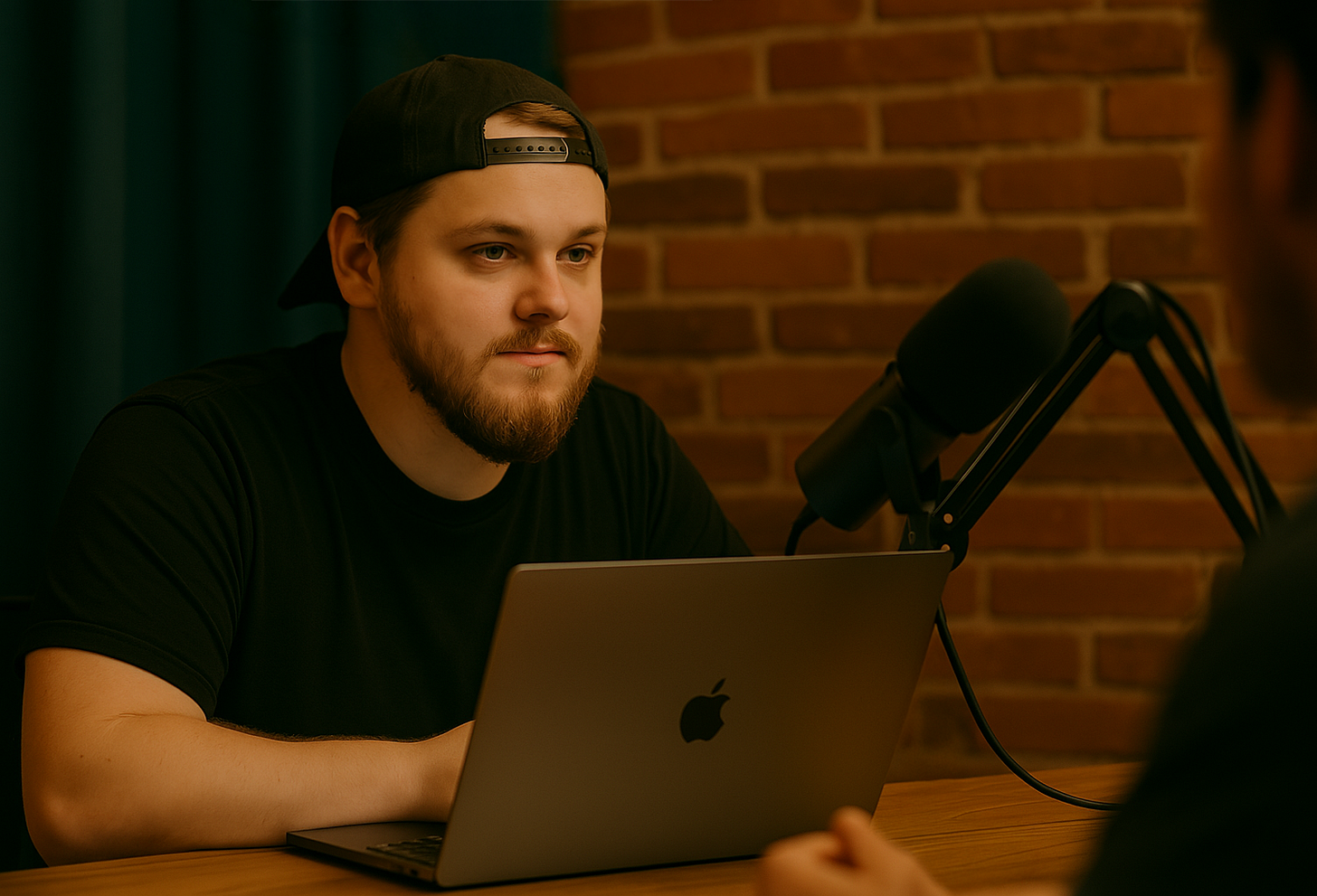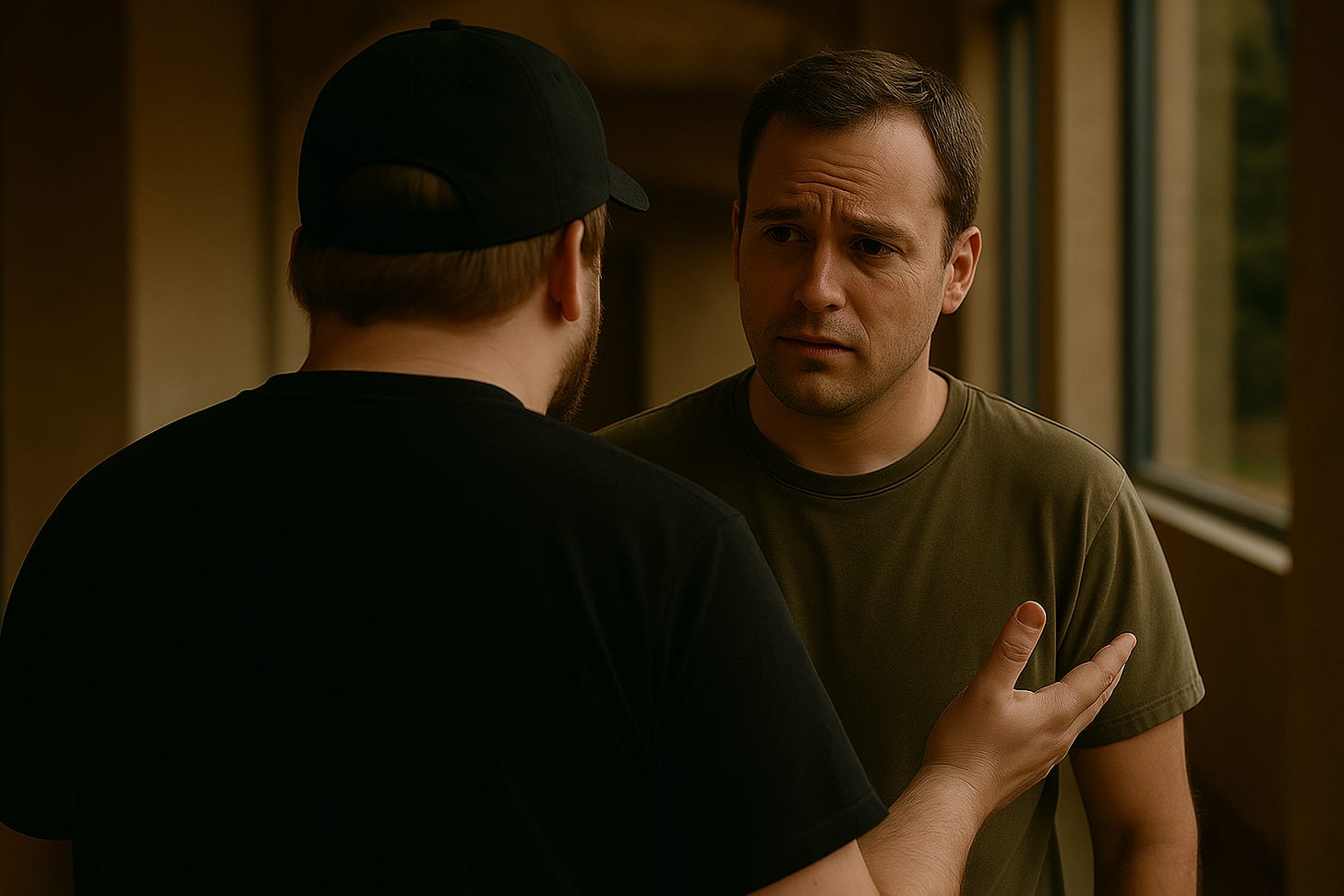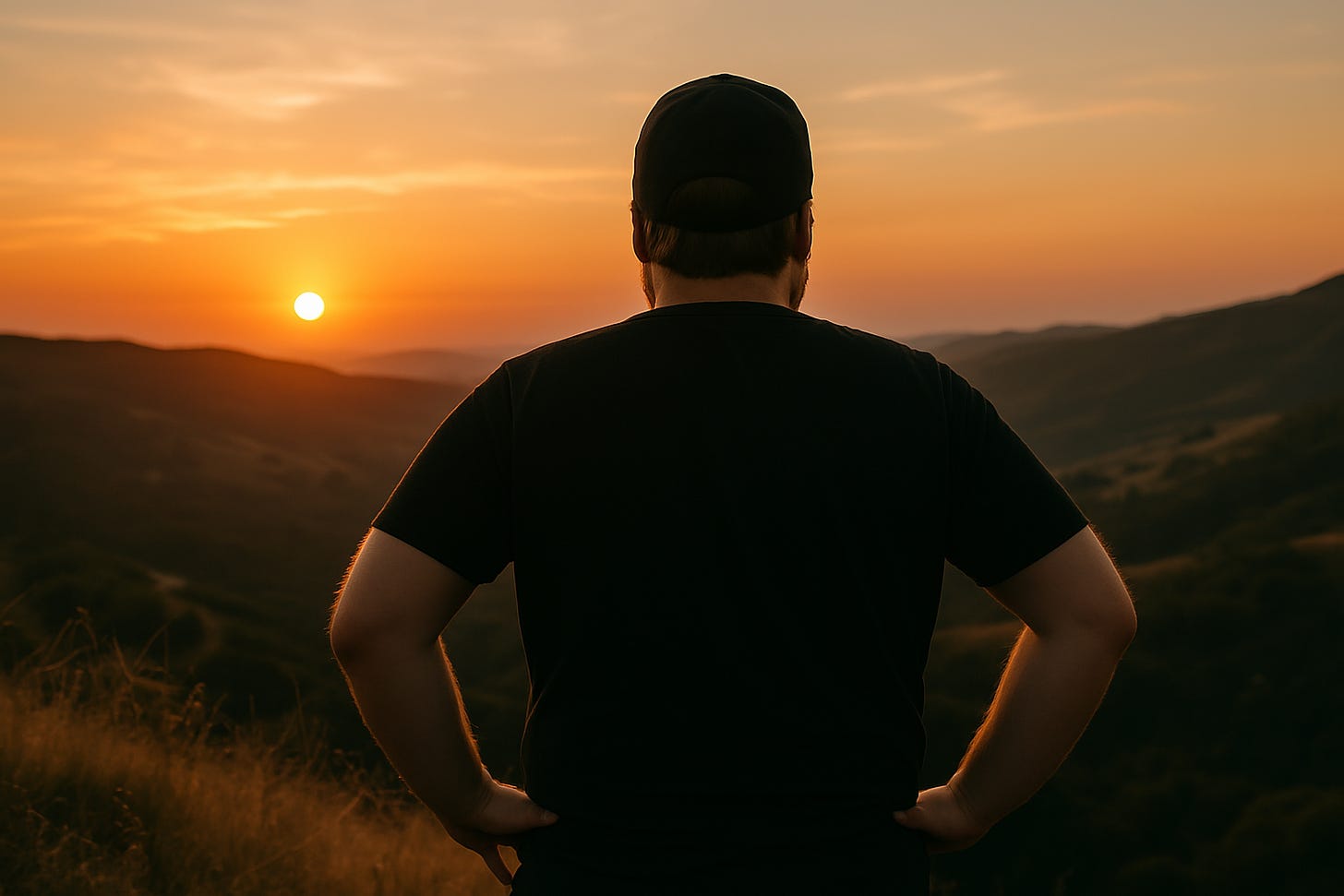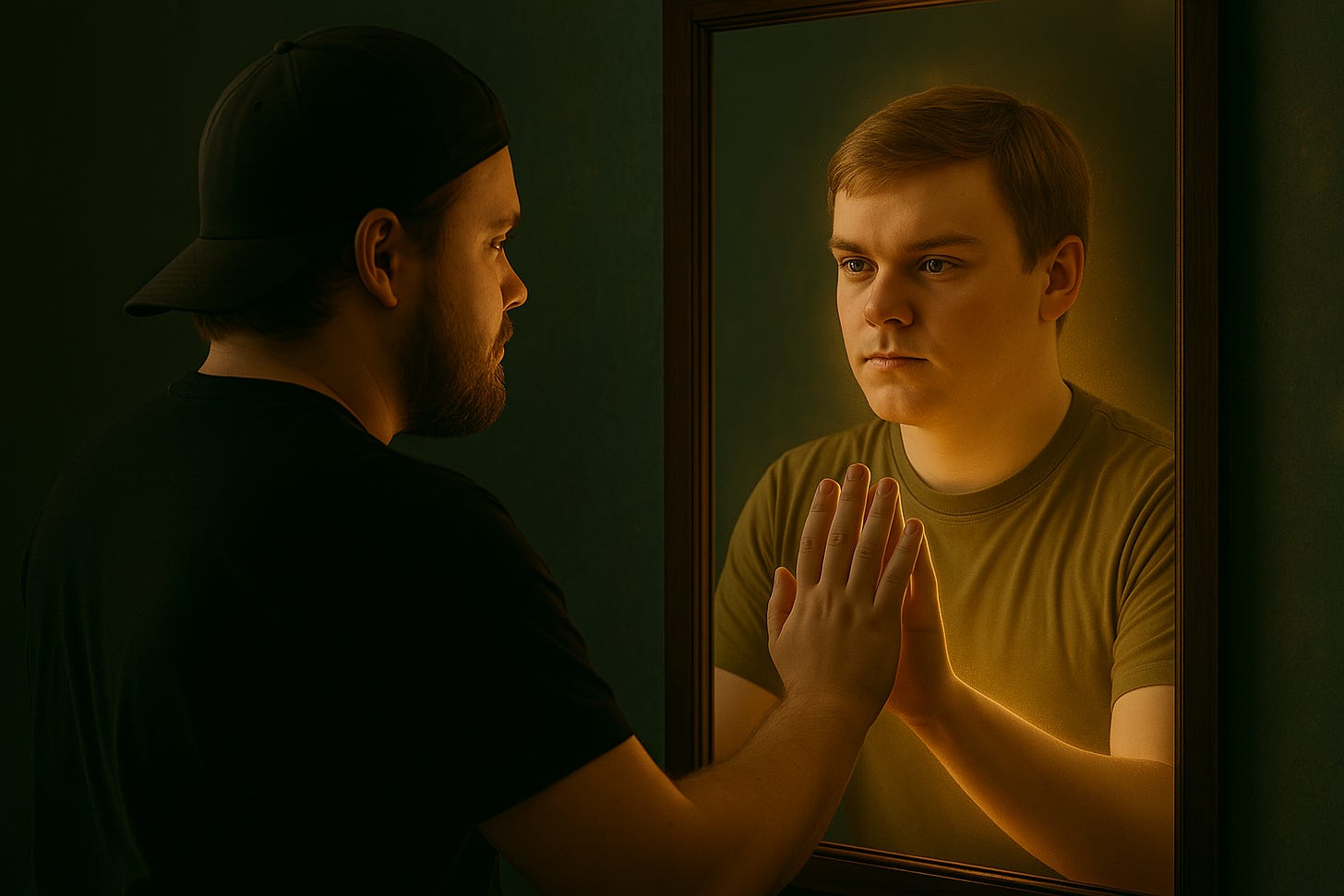I’ve always been funny, but I haven’t always been kind.
I could make people laugh on command—and I did. But underneath the jokes was someone unraveling in private. Humor got me in the room, but it never taught me how to be honest with myself.
I’ve been doing a lot of inner-child healing, and part of that is accepting who I became at one point in time: someone I did not like. It has been a long road, but I wanted to talk about some things I have learned so far. Read through to get to the poll, I’m interested in your responses!
I was the unofficial class clown, and I had the Peter Griffin impression to prove it.
No, really. I had a killer Peter Griffin impression. It carried me further socially than it probably should have.
That, plus a decent sense of timing and an ability to read the room (which I now understand as… an intuition–we can call it), made me a kind of shapeshifter in high school.
I was a choir kid, but I also floated between friend groups like a social chameleon. Theater kids, athletes, band kids, the anime corner–I could hang with anyone.
And I genuinely loved people. I wasn’t faking the joy I felt in their company.
I loved making people laugh, easing the tension, bringing energy into a room. But the performance wasn’t always coming from a healthy place.
Behind the impressions and quick wit was a kid who hadn’t been diagnosed yet. I was masking hard, spiraling quietly, and confused about why everything felt so loud all the time.
I was hurting people, and I didn’t know how to stop.
I talked behind backs. I sabotaged friendships. I weaponized humor in ways that weren’t okay and pretended it was just a joke when it wasn’t.
I wanted so badly to be seen and liked that I became someone I didn’t even recognize.
I was trying to control how people saw me because I didn’t know who I was yet. And the more confused I felt, the more I leaned into what worked: comedy, charisma, performance.
Anything but silence. Anything but vulnerability.
I wasn’t the monster I told myself I was for years. I was a kid in pain. But that doesn’t mean I didn’t cause harm.
I was told I was bright enough to know better. That made it worse.
Here’s where it gets complicated. I am responsible for my actions.
I don’t believe in dodging that. But I was also an autistic kid, undiagnosed, trying to make sense of a world that does not explain itself.
People saw a smart, articulate, capable kid and assumed I could self-regulate, self-soothe, and self-correct.
I couldn’t.
I didn’t even have the language for what I was feeling.
I was scared, I was consistently overstimulated, and I was constantly being told I was too smart to act this way.
That belief? That I should’ve known better? It kept me from getting help sooner. It also made it harder to admit I was struggling.
I didn’t want to be pitied. I wanted to be understood.
I spent years trying to tell my own story. Now I’m learning to tell others’.
For a long time, everything I created was a way to say, please see me.
Every sketch, every joke, every “funny fat friend” bit, it was all part of the same performance; Self-expression wrapped in a survival instinct.
But that shifted when I started working on Win The Night with Josh.
Instead of trying to be the voice, I became the listener. The documenter. The person behind the scenes, helping shape someone else’s story with care.
And that work has cracked something open in me.
Listening made me realize how much I had missed.
There’s a discipline to listening that no amount of charm or comedic timing can fake. When you’re not the one talking, you start to hear the small things.
The pain under the pride.
The moments people didn’t think anyone would care enough to ask about.
That’s when I started to understand the harm I had caused. Not just the obvious mistakes, but the subtle betrayals:
Times I should have shown up but didn’t.
Times I laughed with someone but talked about them later.
Times I wanted to be liked more than I wanted to be kind.
Silence taught me what jokes never could.
Being human isn’t about being entertaining.
It is about being accountable.
I’m not doing comedy right now. I’m doing the work.
There’s still a version of me that loves a room full of laughter. And I know I’ll return to that space when the time is right. But right now, I’m not chasing laughs. I’m chasing clarity.
I’m learning how to hold space. How to repair. How to unlearn the instinct to perform when I should just be.
And yes, that includes holding myself accountable for the way I moved through the world before I knew better.
Not to wallow in guilt. To honor the people I hurt by not pretending it didn’t happen.
If you’ve been both the punchline and the problem, you’re not alone.
It’s not easy to admit when you were the one who messed up. Especially when some people still remember you as the funny one. The fun one.
But if you’re carrying regret, if you’re slowly unpacking the harm you caused while still trying to forgive the version of yourself that did it, you’re in good company.
You’re allowed to grow. You’re allowed to make amends. And yes, you’re allowed to laugh again someday.
But first, you have to stop performing long enough to actually listen.
Have you ever realized you weren’t who you thought you were?
Share your story or reflect with me in the comments.





